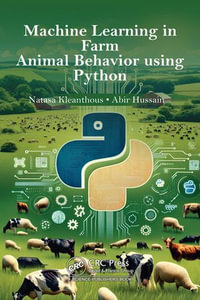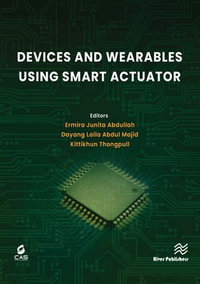
eTEXT
Smart Water Grids
A Cyber-Physical Systems Approach
eText | 17 April 2018 | Edition Number 1
At a Glance
eText
$343.20
Instant online reading in your Booktopia eTextbook Library *
Read online on
Not downloadable to your eReader or an app
Why choose an eTextbook?
Instant Access *
Purchase and read your book immediately
Read Aloud
Listen and follow along as Bookshelf reads to you
Study Tools
Built-in study tools like highlights and more
* eTextbooks are not downloadable to your eReader or an app and can be accessed via web browsers only. You must be connected to the internet and have no technical issues with your device or browser that could prevent the eTextbook from operating.
The effects of climate change, rapid urbanization, and aging infrastructure challenge water policymakers to confront a radical paradigm shift in water resources utilization. Recent advances in sensing, networking, processing, and control have provided the means for sustainable solutions in water management, and their implementation in water infrastructures is collectively referred to as "smart water grids."
Smart water grids depend upon cyber-physical system principles to effectively respond to issues regarding the scalability and reliability of dynamic and inaccessible environments. As such, unique smart water grid issues associated with front-end signal processing, communication, control, and data analysis must be jointly addressed, while sophisticated techniques for data analytics must be introduced into cyber-physical systems research.
This book provides a thorough description of the best practices for designing and implementing cyber-physical systems that are tailored to different aspects of smart water grids. It is organized into three distinct, yet complementary areas, namely: the theory behind water-oriented cyber-physical systems with an emphasis on front-end sensing and processing, communication technologies, and learning techniques over water data; the applications and emerging topics of cyber-physical systems for water urban infrastructures, including real-life deployments, modern control tools, and economic aspects for smart water grids; and the applications and emerging topics across natural environments, emphasizing the evolution of fresh water resources.
The structured discussion yields a rich, comprehensive body of knowledge on this emerging topic of research and engineering. As water issues intensify on a global scale, this book offers an algorithmic and practical toolkit for intermediate and advanced readers as well as professionals and researchers who are active in, or interested in, learning more about smart water grids.
Key Features:
- Emphasizes the multidisciplinary nature of this emerging topic, covering both theoretical and practical aspects of this area while providing insights on existing deployments, which can serve as design examples for new applications.
- Explores how modern signal processing and machine learning techniques can contribute and enrich the potential of smart water grids, well beyond conventional closed-loop control techniques.
- Highlights complementary aspects that will help shape the future of smart water grids, such as consumption awareness, economic aspects, and control tools in industrial water treatment as well as the impact of climate change on fresh water resources.
- Enables the reader to better understand this emerging topic, investing in current state-of-the-art and future technological roadmaps for smart water grids.
Read online on
ISBN: 9781351986168
ISBN-10: 1351986163
Published: 17th April 2018
Format: ePUB
Language: English
Publisher: Taylor & Francis
Edition Number: 1
You Can Find This eBook In
This product is categorised by
- Non-FictionEngineering & TechnologyElectronics & Communications EngineeringElectronics Engineering
- Non-FictionEngineering & TechnologyEnvironmental ScienceSanitary & Municipal EngineeringWater Supply & Treatment
- Non-FictionEngineering & TechnologyCivil Engineering
- Non-FictionIndustry & Industrial StudiesEnergy Industries & UtilitiesWater Industries
- Non-FictionEngineering & TechnologyEnergy Technology & EngineeringElectrical Engineering
- Non-FictionEngineering & TechnologyEnvironmental Science
























